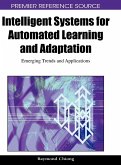Recommender systems have become an integral part of our daily lives, playing a significant role in shaping our online experiences. From suggesting movies on streaming platforms to recommending products on e-commerce websites, these systems have revolutionized the way we discover and consume content. In this subchapter, we will delve into the fundamentals of recommender systems, providing practical insights for engineers in the niche fields of data science and machine learning. At its core, a recommender system is an algorithmic approach that predicts and provides users with personalized recommendations based on their preferences, historical behavior, and other relevant data. By understanding user preferences and leveraging the power of machine learning, these systems aim to deliver relevant and personalized content, enhancing user satisfaction and engagement. One of the key challenges in building intelligent recommender systems lies in capturing and representing user preferences accurately. Collaborative filtering, content-based filtering, and hybrid approaches are some of the popular techniques used for generating recommendations. Collaborative filtering analyzes user behavior and preferences to find similarities among users or items, while content-based filtering focuses on the attributes of items to recommend similar ones. Hybrid approaches combine the strengths of both techniques to provide more accurate and diverse recommendations. Engineers working in the data science and machine learning fields must be well-versed in the underlying algorithms and methodologies used in recommender systems. Matrix factorization, deep learning, and reinforcement learning are some of the advanced techniques employed for improving recommendation accuracy and addressing cold-start problems. However, building intelligent recommender systems is not solely about algorithms and models. Engineers must also consider factors such as data quality, scalability, interpretability, and ethics. The book "Building Intelligent Recommender Systems: Practical Insights for Engineers" aims to equip engineers with a comprehensive understanding of these factors, providing practical guidance and real-world examples to design and deploy robust recommender systems.
Hinweis: Dieser Artikel kann nur an eine deutsche Lieferadresse ausgeliefert werden.
Hinweis: Dieser Artikel kann nur an eine deutsche Lieferadresse ausgeliefert werden.








